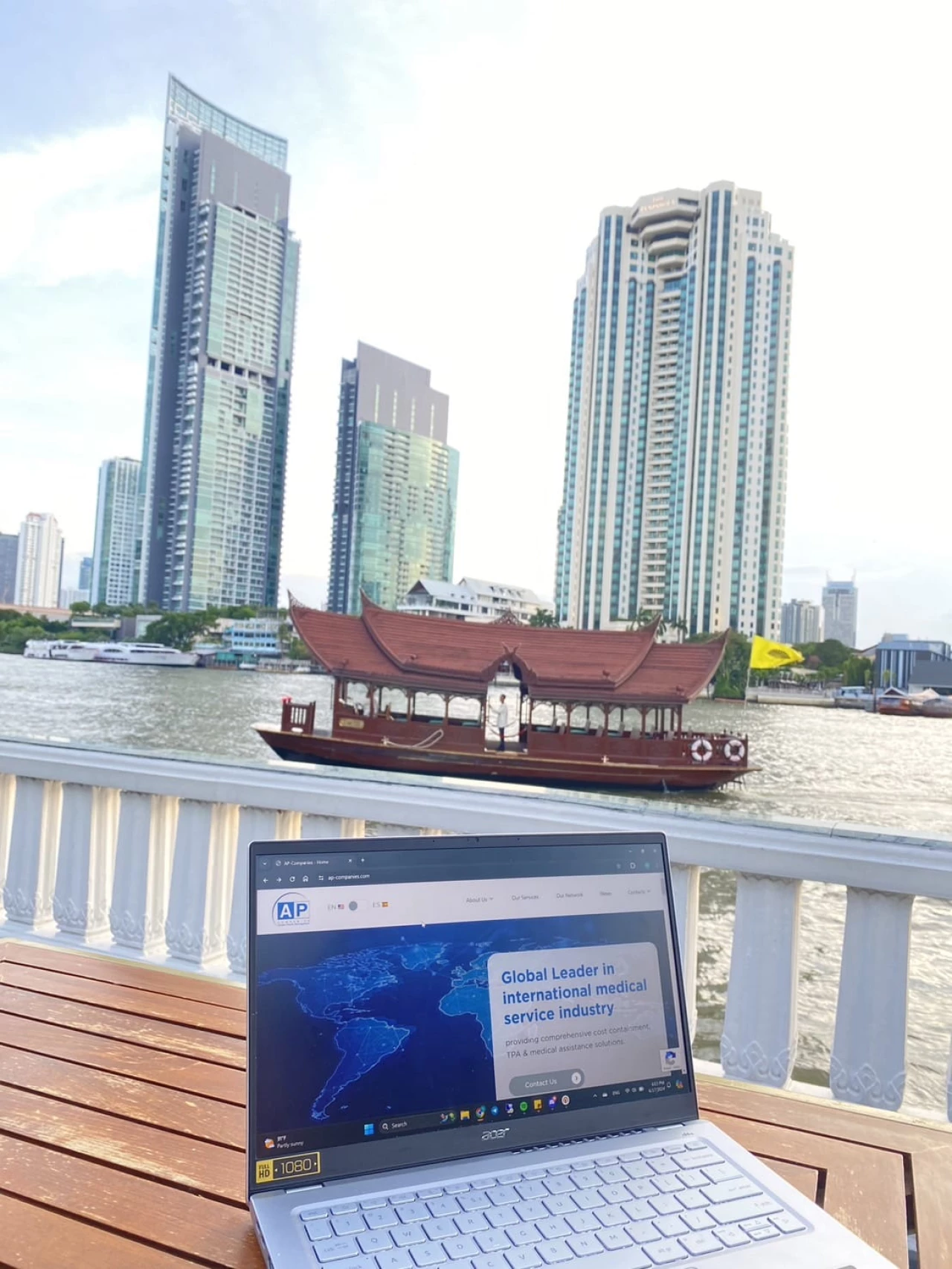Shanghai, China’s largest city and a global financial hub, boasts a robust and highly developed healthcare system. The system is tiered, consisting of primary, secondary, and tertiary hospitals. Primary hospitals handle basic healthcare services, such as general outpatient care, vaccinations, and minor ailments. Secondary hospitals provide more specialized care and are often regional medical centres catering to more complex cases. Finally, tertiary hospitals, such as major teaching hospitals, deliver the highest level of care, including cutting-edge treatments and research-based medical services. These hospitals are generally better equipped and more likely to handle severe cases, such as trauma or advanced illnesses.
For expatriates, tourists, and seafarers needing healthcare in Shanghai, English-speaking facilities are essential. Several international clinics and hospitals in the city, such as Shanghai United Family Hospital, Parkway Health, and Global HealthCare Shanghai, cater specifically to foreigners. These institutions offer English-speaking staff, Western standards of care, and direct billing with international insurance providers. However, accessing healthcare in Shanghai is not without challenges, particularly when dealing with regulatory requirements, cultural differences, and logistical obstacles.
AP Companies collaborates directly with over 115 medical facilities in Shanghai has over 3500 providers in all of China.
Challenges for Expats Accessing Healthcare
Expats living in Shanghai often face difficulties navigating the healthcare system due to language barriers, cultural differences, and a lack of familiarity with local regulations. While international hospitals are available, they are significantly more expensive than local facilities. Insurance coverage is critical, but not all expatriates have policies that cover the high costs associated with these facilities. Expats have needs for ongoing care – from primary to occasionally specialized tertiary care and tend to have fewer emergencies.
If more specialized treatments are needed, expats may need to visit local tertiary hospitals, where English-speaking staff are scarce, and navigating the system can be daunting. Long wait times, even at top-tier hospitals, are common unless an appointment is made in advance through specific channels. The cultural emphasis on traditional Chinese medicine (TCM) also plays a role, as it may be included in treatment plans—a concept unfamiliar to many expats accustomed to Western medicine.
Another challenge is the legal and administrative process for medical care. For example, certain medications that are readily available in other countries may be restricted or require specific documentation in China. Expats may also need to comply with additional steps, such as securing health checks for visa renewals or managing chronic illnesses under local medical guidelines, which can differ significantly from international standards.
Working with AP Companies is critical.
Networks must be developed over time and must be based upon accreditation and quality standards such as JCI accreditation, multilingual medical staff with cultural sensitivities, availability of specialized tertiary services and specialists, 24/7 availability, direct billing capabilities and means for rapid repatriation. Networks must include international hospitals, private clinics, and specialized medical centres. The assistance company, such as AP Companies, or the responsible entity must have local representatives who actively negotiate agreements and conduct thorough due diligence.
AP Companies has a robust direct billing network in Shanghai, covering a wide range of medical providers.
Delivering Healthcare to Cruise Ship Passengers and Crew
For cruise ships docking in Shanghai, addressing passenger and crew health issues involves a unique set of challenges. When a passenger or crew member requires disembarkation for medical reasons, coordination between the ship’s medical team, the port authorities, and local healthcare providers is critical. Disembarkations are usually for emergencies although visits for acute or chronic non-emergent problems that cannot be managed on board may be possible.
Regulatory Challenges
The regulatory framework in China mandates strict protocols for medical disembarkations. Ships must notify port health authorities of any medical issues onboard before docking, and approval for disembarkation must be granted by the Shanghai Entry-Exit Inspection and Quarantine Bureau. This process can cause delays, particularly if additional health screenings or quarantine measures are required.
For example, during the COVID-19 pandemic, Shanghai’s health authorities implemented stringent quarantine and testing requirements for incoming ships, creating significant delays in disembarking ill passengers or crew members. The testing requirements were not necessarily scientifically based and often varied from one port to another or one week to the next. While these restrictions have eased, regulations around infectious disease management remain stringent, requiring ships to submit detailed health declarations and medical records before disembarkation. The Chinese are always fearful of the introduction of respiratory illnesses despite the fact that most of the respiratory illnesses originate there.
Language and Communication Barriers
Once disembarkation is approved, language barriers can complicate the transfer of medical information between the ship’s doctor and local healthcare providers. This can lead to delays in treatment or miscommunication about the patient’s condition. Although international hospitals are available, they may not always be the closest or most feasible option, particularly for emergencies.
Emergency Response and Transportation
Shanghai has a well-established emergency medical response system, but its efficiency can vary depending on traffic conditions and the location of the ship. Cruise terminals like the Shanghai Wusongkou International Cruise Terminal are relatively close to major hospitals, but transporting a critically ill patient through the city’s congested roads can pose significant challenges. Helicopter evacuations are rarely used due to regulatory hurdles, making ambulances the primary mode of transportation.
Healthcare for Cargo Ship Crew Members
Healthcare for cargo ship crew members in Shanghai presents additional logistical and regulatory complexities. Cargo ports are often located farther from the city center, making access to high-quality healthcare facilities more challenging. Ports like Yangshan Deep-Water Port are situated on islands connected by long bridges, further complicating emergency transportation. It should be noted that Shanghai has limited resources for addressing mental health needs in seafarers.
Legal and Insurance Issues
Many crew members on cargo ships are covered by international insurance policies or agreements under maritime law. However, the reimbursement process can be complicated when dealing with local hospitals unfamiliar with such arrangements.
Solutions and Recommendations
To address these challenges, stakeholders—including healthcare providers, ship operators, and local authorities—must work collaboratively to improve healthcare delivery in Shanghai. Key recommendations include establishing dedicated liaisons to facilitate communication between ship medical teams, port authorities, and local hospitals can streamline the disembarkation process. The use of medical translation services to bridge language gaps and ensure accurate patient information transfer is critical.
AP Companies is critical to provide this level of communication and logistical coordination.
International standards of care should be sought out in advance including expanding access to English-speaking healthcare providers in local hospitals. A strong knowledge of the capacity of international hospitals to handle emergencies and knowing the fastest and most efficient transportation options could be of great help in managing emergencies.
Someone must be available and knowledgeable in simplifying the approval process for medical disembarkation through digital platforms or pre-approval systems could reduce delays and improve outcomes. All key shipboard personnel who will be docking in Shanghai should receive training on local healthcare regulations and protocols.
It is also very important for someone in the company or for the assistance company to provide information on any local outbreaks or epidemiological issues and report this to expats and ships coming into port. For example, Shanghai is currently experiencing an outbreak of Human Metapneumovirus (HMPV) which has similar symptoms to COVIDS and flu.
Last year in Asia, AP Companies managed 7651 provider visits and 244 evacuations for cargo/cruise lines and 9766 provider visits and 161 evacuations for expats.
Conclusion
Delivering healthcare in Shanghai for expats, cruise ship passengers, and cargo crew members is a multifaceted challenge shaped by local regulations, cultural differences, and logistical constraints. While Shanghai’s healthcare system is advanced, navigating it can be difficult for non-residents, particularly in emergency situations. By improving communication, expanding access to international-standard care, and addressing regulatory hurdles, healthcare delivery in Shanghai can better meet the needs of its diverse international population. Collaborative efforts among stakeholders will be essential in overcoming these challenges and ensuring quality care for all.







